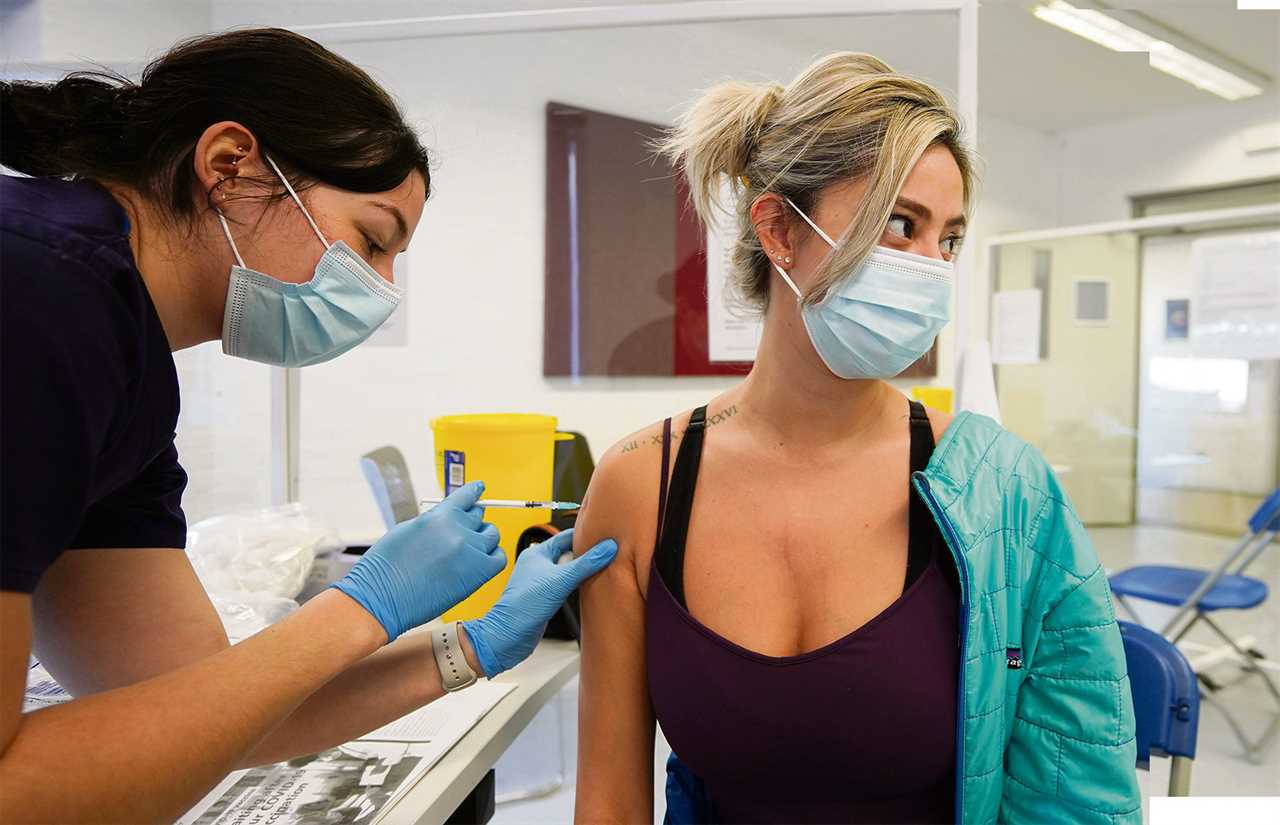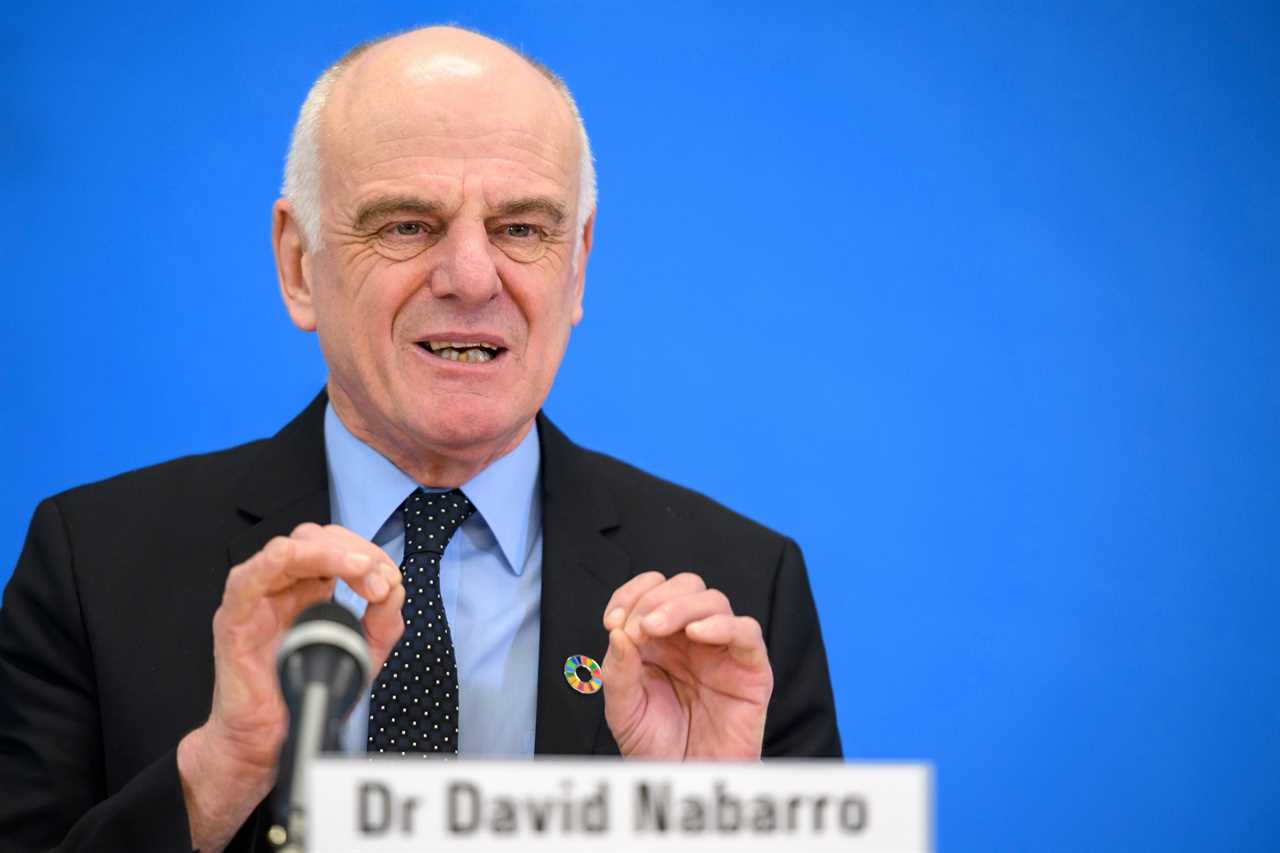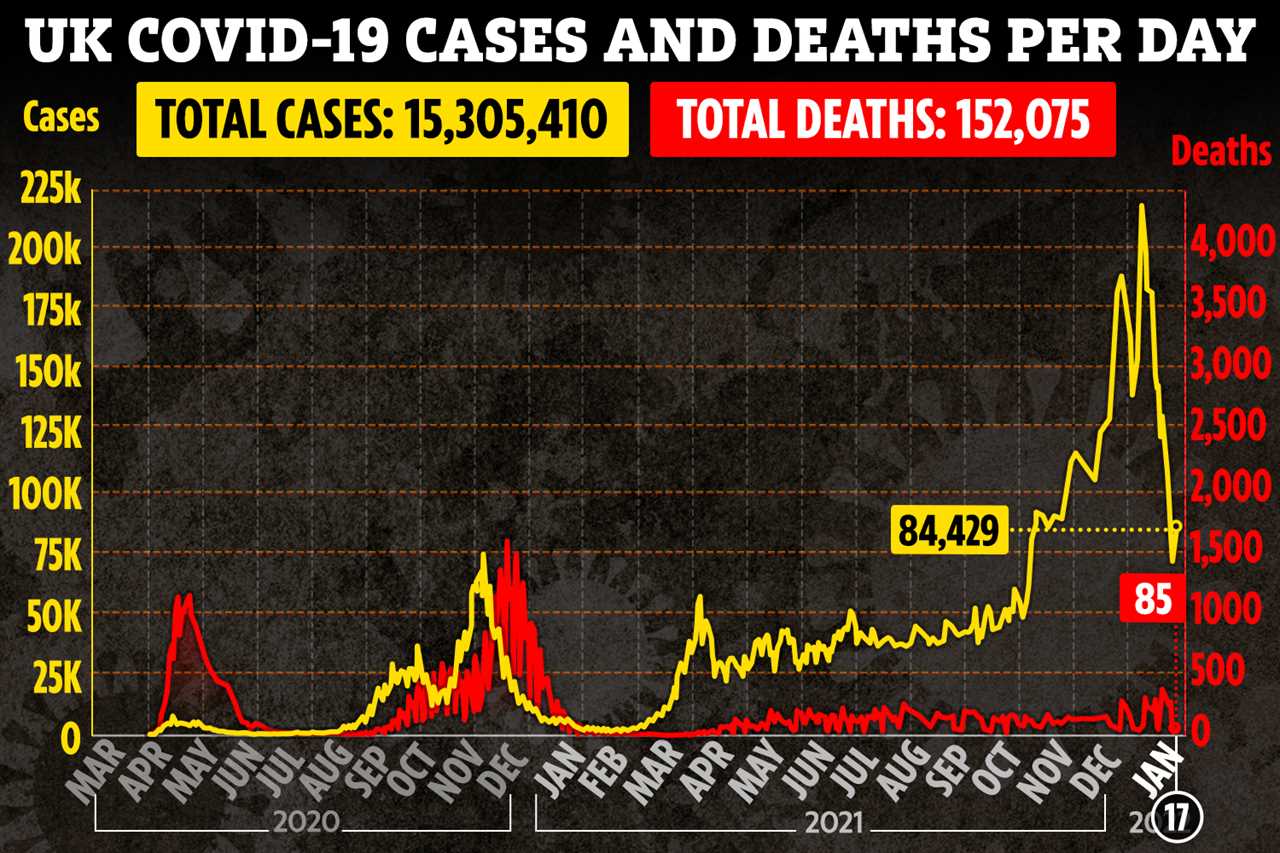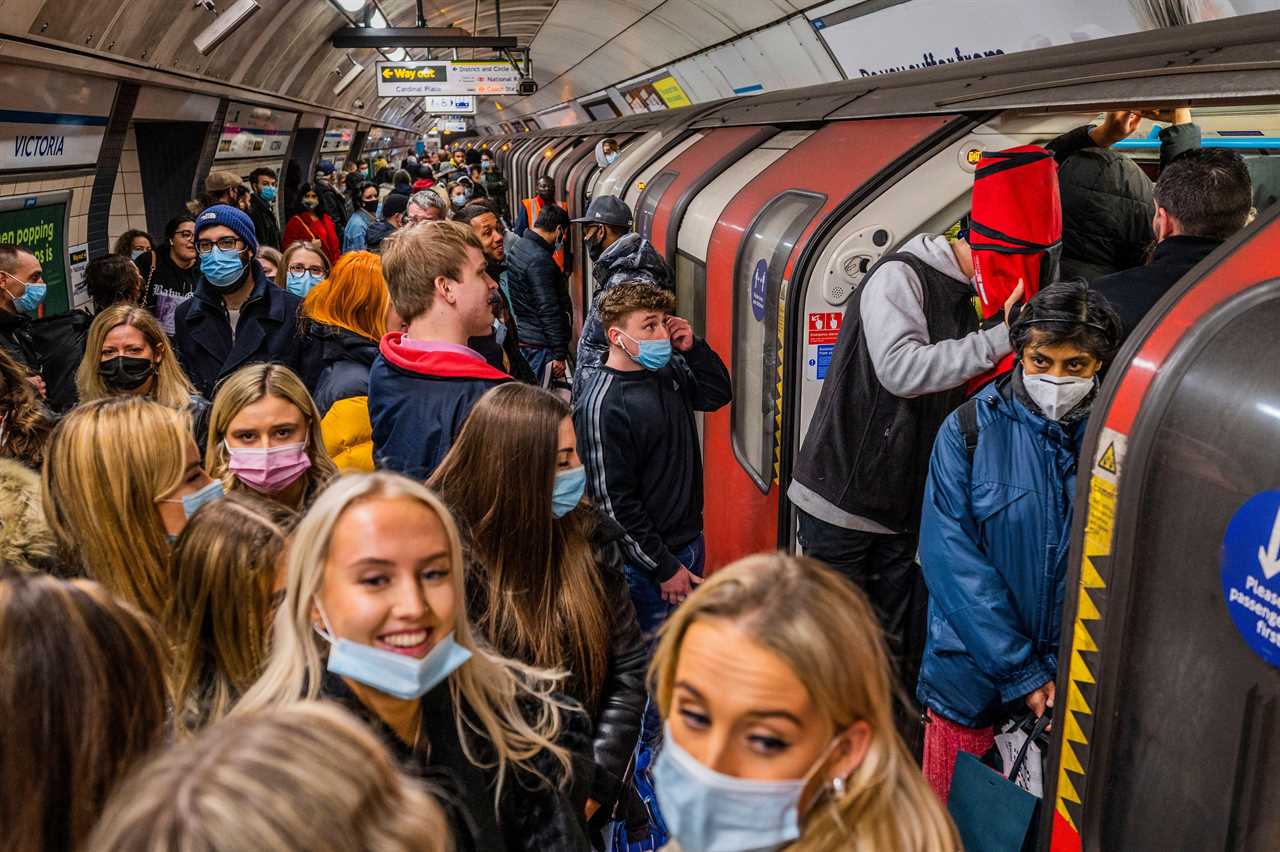BRITAIN has passed the Omicron peak and experts reckon the end of the pandemic is now in sight.
Infections and hospital cases are falling across the country — the first time both measures have dropped since the ultra-contagious Covid variant swept the UK at the end of last year.


The World Health Organization’s Covid special envoy David Nabarro said Britain could now see “light at the end of the tunnel”.
And Professor Paul Hunter, from the University of East Anglia, predicted that life could be back to normal by the summer.
He said: “Covid will soon be just one of the causes of the common cold and will be a pain in the behind, maybe flaring up in winter.
“We will need boosters for the most vulnerable but I can’t see widespread mask use or testing being warranted.
“I think it’s quite plausible that we won’t have any restrictions by summer. That is a reasonably realistic expectation.
“Ultimately, we will live in a society that this thing circulates quite widely and every few years we’ll get a dose of the cold.
“But ultimately, it won’t be killing people, with the exception of our older population.”
Prof Hunter’s comments came as it was revealed that weekly infections are down 42 per cent compared with the previous seven days — with a fall of more than 500,000.
And 16,621 Covid patients are now in NHS beds in England, down from 17,120 a week earlier.
Professor Alastair Grant, from the University of East Anglia, said cases were plummeting nationally, with England’s R rate at 0.67.
It means for every 100 infections, just 67 are passed on.
The latest figures also show infections are tumbling in all regions and are down by more than a third in most parts of England.

In the ten days since cases peaked in the UK, daily positive tests have dropped by half in London and the North West.
The North East has been the slowest to emerge from the danger zone — falling by less than a fifth since January 4 — but had the lowest numbers to begin with.
Hospital admissions have also hit a peak in every region of England.
NHS statistics show the daily number of new patients is flat or falling countrywide.
Nationally there are an average of 1,921 new admissions a day, down by six per cent from 2,040 a day on January 1.
The number of Covid patients on intensive care ventilators dropped another 12 per cent in the past week to 623.
Downing Street hailed “encouraging signs” in the data, with 84,429 daily confirmed infections yesterday.
As a result, ministers are on course to lift most restrictions next week with the majority of Plan B measures set to be scrapped.
But in a sign many are already being ignored, London is now at its busiest since Plan B came into effect last month.
LONDON’S BACK IN BUSINESS
Data recorded by satnav company TomTom yesterday revealed traffic was 69 per cent busier in the capital between 8am and 9am than at any time since December 8.
There was also an eight per cent jump yesterday from last week on people using the Underground.
Meanwhile, bus commuters tapped in and out 1.2million times yesterday — a four per cent weekly rise.
Government scientists said the latest Omicron figures were good news for the nation.
Professor Mike Tildesley, of the Scientific Pandemic Influenza Modelling group, said Covid could be a problem similar to flu by the end of the year.
The Warwick University expert said: “We have had very, very high case numbers throughout late December and early January — we peaked about 200,000 at one point. We do now seem to be a little bit beyond that.”
Other experts agreed that the picture was looking much brighter. Dr Simon Clarke, microbiologist at the University of Reading, said: “People should get on with their lives but be aware it’s not the end.
“We’re clearly heading in the right direction. There are only so many people likely to get infected and, if it burns through them quickly, it will run out of road.
“The booster rollout has really built up immunity and despite initial worries the vaccines are still slowing transmission, even if they are not stopping it.
“I am pleasantly surprised that, although we have had lots of people admitted to hospital, it hasn’t massively driven up the numbers in intensive care.”
- Moderna will have a combined Covid and flu booster jab ready to roll within two years. The company said it is also engineering an Omicron-specific Covid booster.









